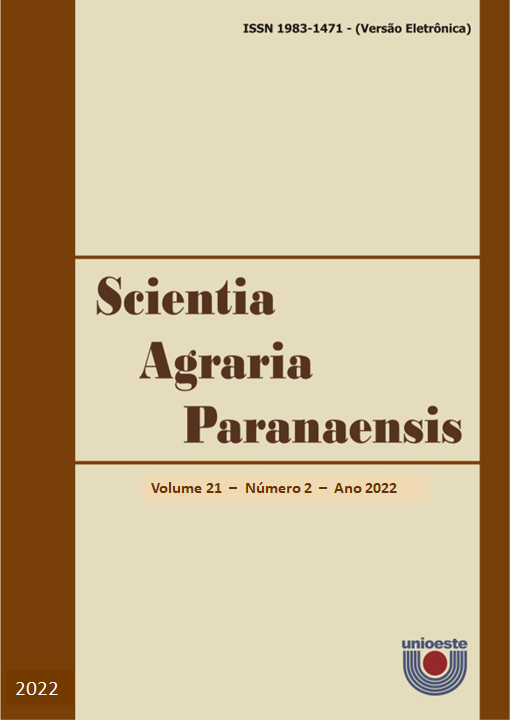Multiple comparison and clustering statistical tests in the software RBio for lettuce and maize crops
DOI:
https://doi.org/10.18188/sap.v21i2.29243Resumo
The objective of this study was to evaluate the efficiency and uniformity of multiple comparison tests when compared to clustering test applied in the software RBio. The evaluations were carried out using data of agricultural experiments conducted by the authors, in the experimental field of the Federal University of Goiás. The data analyzed were from three experiments conducted for lettuce and maize crops: the first was conducted in a completely randomized design; the second in a randomized block design; and the third in a randomized block design with split-plot arrangement. The evaluation of the data collected in the lettuce and maize crops was carried out using the software Rbio. The data were subjected to analysis of variance by the F test at 5% probability. The means were compared by multiple comparison (Tukey, Duncan, and Student-Newman-Keuls), and clustering (Scott-Knott) tests. The lower rigor of the Tukey, Student-Newman-Keuls, and Duncan tests results in higher incidence of type I error, and the ambiguity allowed by them generates difficulties in the interpretation of results. Considering that the Scott-Knott test does not allow for a mean to belong to more than one group and it has higher rigor, which generates a lower incidence of type I error, it is the recommended test for the studies evaluated.
Downloads
Publicado
Como Citar
Edição
Seção
Licença
Aviso de Direito Autoral Creative Commons
Política para Periódicos de Acesso Livre
Autores que publicam nesta revista concordam com os seguintes termos:
1. Autores mantém os direitos autorais e concedem à revista o direito de primeira publicação, com o trabalho simultaneamente licenciado sob a Licença Creative Commons Attribution que permite o compartilhamento do trabalho com reconhecimento da autoria e publicação inicial nesta revista.2. Autores têm autorização para assumir contratos adicionais separadamente, para distribuição não-exclusiva da versão do trabalho publicada nesta revista (ex.: publicar em repositório institucional ou como capítulo de livro), com reconhecimento de autoria e publicação inicial nesta revista.
3. Autores têm permissão e são estimulados a publicar e distribuir seu trabalho online (ex.: em repositórios institucionais ou na sua página pessoal) a qualquer ponto antes ou durante o processo editorial, já que isso pode gerar alterações produtivas, bem como aumentar o impacto e a citação do trabalho publicado (Veja O Efeito do Acesso Livre).
Licença Creative Commons
Esta obra está licenciada com uma Licença Creative Commons Atribuição-NãoComercial-CompartilhaIgual 4.0 Internacional, o que permite compartilhar, copiar, distribuir, exibir, reproduzir, a totalidade ou partes desde que não tenha objetivo comercial e sejam citados os autores e a fonte.


